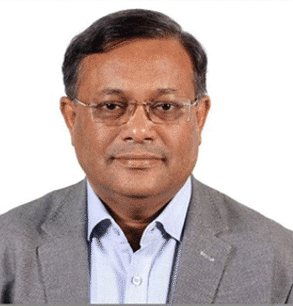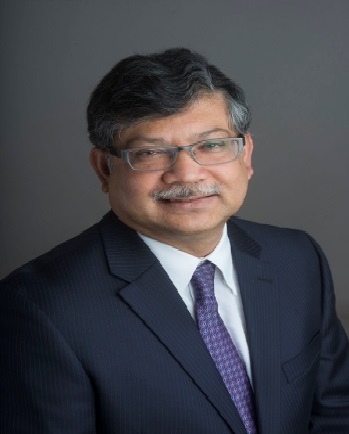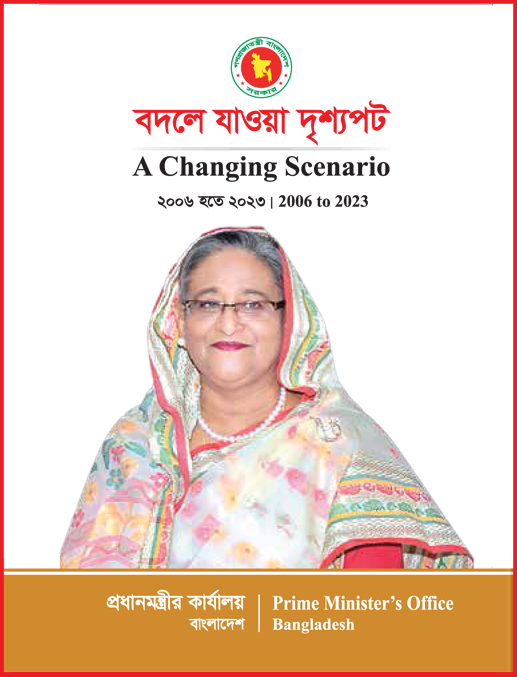Statement by Hon’ble Foreign Minister. A. H. Mahmood Ali, MP at the seminar titled ‘Commonwealth Advantage – Progress and Potential’ held during the visit of the Commonwealth Secretary General at BIISS; 1100hrs, 08 August 2018

Commonwealth Secretary General TheRt Hon Patricia Scotland,
Hon’ble Chairperson of the Parliamentary Standing Committee on Foreign Affairs,
Chairman and Director General of Bangladesh International Institute of Strategic Studies,
Your Excellencies and Members of the diplomatic corps in Dhaka,
Senior officials of the Government,
Distinguished Guests,
Friends from the media,
Ladies and Gentlemen
Very Good Morning to You All
It is indeed a pleasure and privilege for me to be in this august seminar. I thank BIISS for organising the event on the occasion of the Commonwealth Secretary General’s visit. I welcome the Secretary General to Bangladesh. We are happy to have her here with us to share our thoughts as well as hear from her on a Commonwealth that we would like to see in the near future.
In this transformative world, Commonwealth is passing through a time when definitely there is a need for rethinking and reviewingit so as to enable it to meet challenges, needs and aspirations of 2.3 billion people in the decades to come. I believe the same message has come through the historic 25th Commonwealth Heads of Government Meeting (CHOGM) that took place in London last April under the theme- “Towards a Common Future.”Commonwealth to remain relevant, must reinvent its strength and possibilities - creative and productive, and build for the future generations a “Fairer, More Prosperous, More Sustainableand More Secure Future”.
In this regard, let me share a few thoughts with you. First, Commonwealth has to evolve and come up with priorities along the expectations of its member states that are mostly developing ones. Commonwealth must graduate into an Organisation, prepared to meet the evolving needs of the member states through collective initiatives. Second, Commonwealth must increasingly be connected within itself if it wants to remain relevant and useful to its citizenry and foster its values in commonalty.Third,Commonwealth should show the way by setting exampleand facilitating best practice sharing rather than preach. This is because values, whether political or development related, must grow organically. Values cannot be imposed on a society overnight. All valuesshould be nurturedin a comprehensive way to instil the sense of belongingness into the Commonwealth. Fourth, the Commonwealth must welcome and bring in greater role of the private sectorin its programmes and activities.
Madam Secretary General& Distinguished Guests,
We are thus, thinking aloud of a Commonwealth of tomorrow, a reformed and re-launched Commonwealth. Commonwealth’s present state and the context of Brexit are prompting us to explore new possibilities and to think, how to transform the Organisation and make it more responsive to the evolving international realities and the needs and expectations of the majority of its developing member states. The world has changed, the historical context has changed, and the member states role in, value of and expectations from the Commonwealth have also undergone evolution. But the approach, priorities and orientations of Commonwealth have not. Reform therefore, is a must.
What does this re-launch mean to us? It means fundamental change in the structure and orientation of the Organisation, readjustment of the roles and functions of its bodies and mode of work along with a redesigning of its strategies and priorities to enhance Commonwealth’s relevance and value to member states and peoples. We are happy to note that this has started, albeiton a small scale, with the restructuring of the Commonwealth Secretariat undertaken by the Secretary General.
Restructuring of the Commonwealth may include creation of new bodies and mechanisms and reorganising old ones, such as forming a Commonwealth Development Fund or a Bank. Readjustment of roles may include, for example, establishing the CPA in its role of upholding, protecting and promoting political values of the Commonwealth and enhancing its relevance to the peopleat the grass roots. We may seeknew partnerships or alliances and make the best out of Commonwealth accredited organisations, relevant civil society organisations (CSOs) and the private sector. There can be professional and sectoral associations across the Commonwealth, geared to development, for study, survey, sectoral master plans with appropriate plan of action under strategic financing initiatives and technology transfer schemes. We therefore, believe it necessary to have a broad based well representedEminent Persons Group (EPG) to deliberate and come up with recommendations for reforms, similar to the EPG in the recent past that helped us formulate a Commonwealth Charter signed by Her Majesty in 2013.
Excellencies, Ladies and Gentlemen,
The Commonwealth Charterthat was adoptedbrings together two sets of values – political values and development values. We need to emphasise on a fine balance of the two. However, in practical terms, the organisation is yet to bring development values into equal focus and explore synergies and partnership between members towards achieving the SDGs perhaps in an exclusive platform. The adoption of the Commonwealth Declaration on Connectivity for Trade & Investment as well as the Commonwealth Blue Charter at the London CHOGM was a welcome step towards bringing in a development focus at least on paper. This focus, however, needs to be widened and should getdue momentum and support.
What does a development focus mean? Most certainly itimplies concentrating on sustainable growth and comprehensive development; aid for trade, market access for the LDCs and developing countries; and trade and investment with the reduction of aid dependence. It means human resource development, employment generationand for people to have access to better and quality services. Commonwealth can, therefore, do its best in facilitating preferential and free trade arrangements. On vulnerability issues, it means enhancing resilience for vulnerable countries like Bangladesh with assistance, capacity building and technology transfer support for their climate adaptation and mitigation projects. It means youth development, investing in youth and women, encouraging them for healthy competition of science and technology, knowledge, entrepreneurship, sports, culture and othercreative pursuits.
Bangladesh visualises a Commonwealth that would promote drivers of development such as regular migration, R&D and incubation, good governance, infrastructure and connectivity projects, women’s empowerment and more. Hon’ble Prime Minister Sheikh Hasinaexpects the Commonwealth to intensify its work in the areas of human security, blue economy and ocean governance, and other niche areas of Commonwealth such as education, health, conservation and development of sustainable resources. She has a vision of a future Commonwealth having only peace, stability and cooperation within, where no member state wouldbe at war with another.
On global scale, Commonwealth should come to add its value in forming global opinion, giving leadership in thoughts, and setting examples for the world to follow. Its role is in building and strengthening institutions and value is in facilitating development. Its strength is in the unity in its diversity and in supporting equity. For these all, Commonwealth advantages and potentials have to be exploited through a reformed and revitalised Organisation.
I thank youall.













